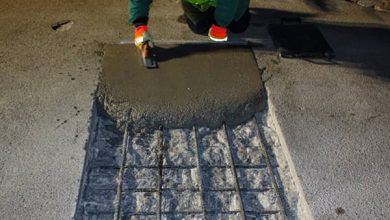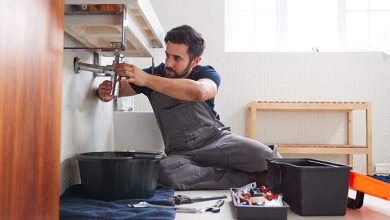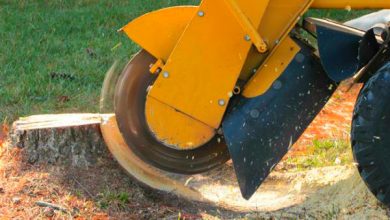The Only Checklist You’ll Need for Maintaining Your Boat

On a summertime day, nothing beats being out on the sea with your boat! When you own a boat, you always have weekends planned, whether you’re fishing or simply hanging out with friends and a full cooler.
An unexpected problem with your boat is the only thing that may ruin your day on the lake. Being trapped aboard a damaged watercraft may be both aggravating and hazardous, depending on where you are in the ocean.
Boat maintenance is so critical, particularly in the summer months when you’re likely to be on the water a lot.
Why Maintaining a Boat Is Essential
Equipment and maintenance-related factors are to blame for a surprising number of boating deaths. Eight percent of boating accidents and four percent of boating fatalities result from simple maintenance mistakes. By keeping to a regular maintenance plan, you can guarantee your boat is ready for the sea.
If you are checking your boat installations before every trip, you sufficiently reduce the chances of getting into any untoward situations while out on the sea. Likewise, if you feel that a certain trip requires you to add a few new boat installations to your vessel, you can go ahead and get that done from Marea Marine.
You should establish a routine for examining and maintaining your boat before and after every dip in the water, from the season until the end. Most owners take great pleasure in their boats, and boat maintenance is seen as an enjoyable component of boating, which helps explain why problems with maintenance are rare. Checkout best boat controls devices here!
There aren’t many boat owners who don’t value their boats highly. It’s the kind of purchase that prospective purchasers may put off making for years while they save up and do extensive research on. In the same way that houses, automobiles, and other significant investments require regular maintenance and repair, so do boats.
One sloppy inspection or a missed maintenance cycle might sink your beloved ship. When it comes to boat maintenance, it’s always best to err on the side of caution and go the extra mile.
Inexperienced boaters should learn how to repair their vessels immediately after learning how to sail. Routine maintenance not only keeps you safe while driving but also protects your new, substantial investment from damage.
To maintain your boat in top condition for many years to come, let’s take a closer look at what good maintenance entails and what kind of routine you should observe.
A Checklist to Boat Maintenance
There are advantages to keeping your boat servicing well-maintained. Keeping your yacht in good working order requires routine maintenance and emergency repairs.
It doesn’t matter whether you’re an expert on rivers, lakes, or the sea. Having a list of specialized maintenance items is essential to avoid missing anything.
Saltwater exposure may wear down your boat’s structural integrity more than any other kind of water.
- Boat owners should thoroughly clean the outside. Maintaining your boat’s exterior is more than just an aesthetic decision. It is essential to wash your boat regularly to prevent corrosion and erosion. If your boat is cleaned between waterways, you may avoid spreading invasive plants and mobile marine mechanic species.
- Inspect and change the oil. The oil in a boat’s engine should be replaced every 50-100 hours, or about once a year.
- Make sure the battery is working correctly. As long as the batteries on a boat are at least 20% full, they may be recharged. To prevent having to replace your battery more often than necessary and, of course, to avoid getting stranded, keeping an eye on its level is essential.
- Check the skeg and the propeller. A boat would be incomplete without its propeller and skeg. A broken or weakened propeller means that you’re unlikely to get very far. A damaged skeg may impair your boat’s ability to navigate the sea.
- If you see any damage to the hull or bilge or any signs of water in the boat, you should inspect it. It’s also a good idea to take a cautious approach to your first dive of the year. Because of their smaller size, smaller boats are better at revealing any defects or leaks that may exist. If you haven’t done so already, spend 15 minutes or so making sure your boat is ready to go.
- Boat owners should check all gauges. You want to be as knowledgeable as possible when out on the lake. Avoid unpleasant surprises by double-checking all of your gauges to make sure they accurately reflect your vehicle’s current speed, fuel level, etc.
- Check the hoses. Like the engine in a vehicle, water hoses on a boat are comprised of rubber and may grow brittle and even shatter with time. You should inspect and replace all hoses if they are damaged or excessively brittle.
- Make that you have enough petrol in your vehicle. This may seem like an obvious one, but it is critical nevertheless. It is easy to forget about refueling, so always check the gasoline before heading off. Make sure you know exactly where you’re going and how much gasoline you’ll need to get there before you go off (and back).
- Make sure your electrical system is working properly. It is feasible for an electrical system to be complex and have several probable failures. Some may affect a broken bulb, while others may have serious ramifications for the whole system. Checkout for the more services marine painters.
Before leaving, you can conduct a quick test of all of your onboard systems, but it’s a good idea to get everything checked out by a professional regularly. Some things can be checked by oneself, but it may be better to have the device inspected by an expert.
- The plumbing and HVAC systems onboard your yacht should be examined (if it has them). If your yacht has ac or plumbing, you should check these regularly. A quick test before a single expedition may be adequate, but you’ll want to get them all checked by a specialist now and then anyhow.
If you have a leaky pipe in your plumbing system, you may not be able to see it right away since it’s hidden under the surface of your home. An unchecked leak may quickly harm your boat’s electrical systems, even if they are not malfunctioning at the time.
- Change or clean the air and fuel filters. Like any other vehicle, boat motors need clean fuel and air to perform correctly. If these components are left unattended and unclean, engine performance may be adversely affected and potential engine damage. Your owner’s handbook should tell you how often you should change your vehicle’s air filter.
- Check the fabric and canvas for any signs of wear and tear. Any flaw or weakness in a fabric may swiftly degrade when exposed to water. Maintain and update these materials regularly to keep your boat comfortable and watertight.
- Moisten and fix any moving components that need it. Your boat may have hundreds of hinges and joints that need to be repaired, depending on the kind. It is crucial to inspect all moving components and add oil or lubricant to prevent corrosion and general filth from building up.
- Check all mooring equipment, including the ropes, chains, anchors, and other fasteners. When docking, storing, or transferring your boat, look for any evidence of breakage or corrosion to reduce the likelihood of it tipping.
Tips for cleaning a boat. Ensure to wash your hands with plenty of clean, fresh water and non-abrasive cleaning products whenever possible. To avoid damaging the outside or compromising any leak-proof parts, use pressure washers on a low setting.
Brushing using a harsh brush may contribute to the natural wear on your boat’s fiberglass, lumber, canvas, and other surfaces. Instead, use a soft brush. The outside of your boat should be refinished at the beginning and halfway through the season to protect it from the elements.
Boat Insurance From a Reputable Provider
There is a limit to how much control boat owners have over the future of their boats. When you bring your boat out of storage, it’s at risk of being damaged by anything from natural calamities to careless boaters. When it comes to accidents on the seas and waters, you never know when you could be blamed. Insurance may serve as a safety net when routine maintenance isn’t enough to keep you and your vessel safe.
Boats need a considerable outlay of capital. So that you can relax and enjoy the air as you scud over the sea worry-free, ensuring your boat is a good idea.



